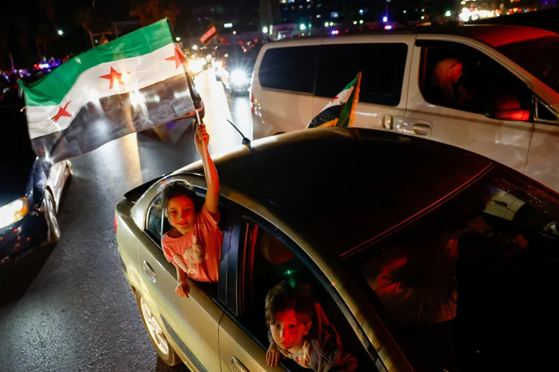In a move close on the heels of United States President Donald Trump, the European Union (EU) announced on Wednesday the lifting of a broad range of economic sanctions previously imposed on Syria. Syria is at the moment recovering from a brutal and divisive civil war. However, the decision by Brussels, comes with conditions, as the EU simultaneously imposed new sanctions on individuals and militant groups accused of involvement in violent attacks on civilians during recent unrest in the country’s coastal region. The conditions are strings attached aimed to remind the new Syrian transitional government to express restraint to minorities with in the country.
The EU’s decision to lift sanctions comes in the wake of profound political changes in Syria. On 8 December 2024, Bashar al-Assad’s regime, which had ruled Syria with an iron fist for over 13 years, was overthrown following a prolonged and brutal civil war. Assad’s departure to Russia marked a historic turning point for the Syrian people, who endured widespread repression, chemical attacks, and mass displacement during his rule. In the power vacuum that followed, Ahmad al-Sharaa, a former rebel commander who led the offensive that unseated Assad, was appointed as the transitional president. Al-Sharaa’s government has pledged to pursue political transition and national reconciliation, while also promising to hold those responsible for recent violence accountable. However, the situation remains fragile. In March 2025, intense clashes erupted in Syria’s coastal region, particularly around Latakia, where armed groups loyal to Assad launched attacks against security forces.
These confrontations triggered retaliatory violence targeting the Alawite minority community, to which Assad belonged.
The EU and Washington’s olive branches to the new transitional government in Damascus in terms of lifting sanctions is meant to create new opportunities in terms of investment for a stable and democratic Syria. Neither Washington nor any of the European powers and the EU Commission want the Syrian state to slide back into conflict like Libya. At least that’s the official theory. Al-Sharaa for his path has promised to lead Syria towards the creation of a new constitution and democratic elections. Long-time Syrian President Bashir al-Assad was the seventh dictator overthrown in the long-time civil wars and revolutions known as the Arab Spring which began in 2011. Now the nation of Syria faces an unknown future as regards to securing stability, security and prosperity. Al-Sharaa must do what needs to be done to oversee the disarmament of the remaining militant groups in the country.
The Alawite community may not be perfect, even blasphemous but bloodshed will achieve nothing. Al-Sharaa must show restraint towards Syria’s religious and ethnic minorities if he wants to rebuild. But he has to deal harshly with those that sort to undermine Syria’s path to democracy.
For now, sanctions relief is already enabling Gulf countries and other actors to invest in Syria. Three days after Trump’s sanctions announcement, an Emirati company signed an $800 million memorandum of understanding with the interim government in Damascus to develop the Syrian port of Tartus and establish industrial and free trade zones. Qatar and Saudi Arabia have already paid Syria’s debt, allowing the country to secure loans and cash infusions from international financial institutions, such as the World Bank. Syria can also be reintegrated into the global financial system. For example, reentering the SWIFT system—which is vital for sending money between banks, international wire transfers, and other payments—would facilitate remittances and other international transactions.
Syria is facing a transition to national healing which would be difficult and unpredictable. Yes, the Syrian people need the money now pouring in to build its infrastructure and economy. The question remains can Al-Sharaa keep the peace? What stance will he take towards the Israeli Zionist regime? An armistice exists between Damascus and Tel Aviv concerning the 1973 war which saw the occupation of the Golan heights (Syrian territory) by the Israelis. Al-Sharaa will have to be weary of any provocations by Israeli Prime Minister Benyamin Netanyahu’s government and the Israeli Defence Force (IDF) to weaken and fragment Syria. The re-integration of Syria back into the global trade and financial system as well as the world community needs to take place carefully.
No government in the world is perfect and Syria still has a path that can prove to be quite uneven to thread. Its only a matter of time that will tell how it will manifest itself.
Article written by:
Yacoob Cassim
Journalist at Radio Al Ansaar






